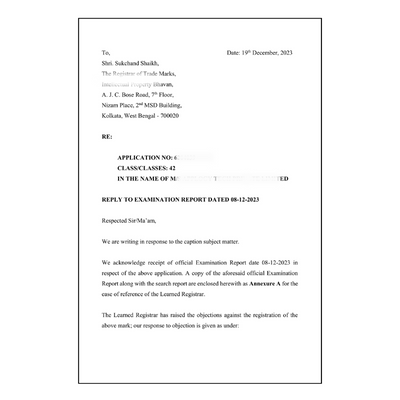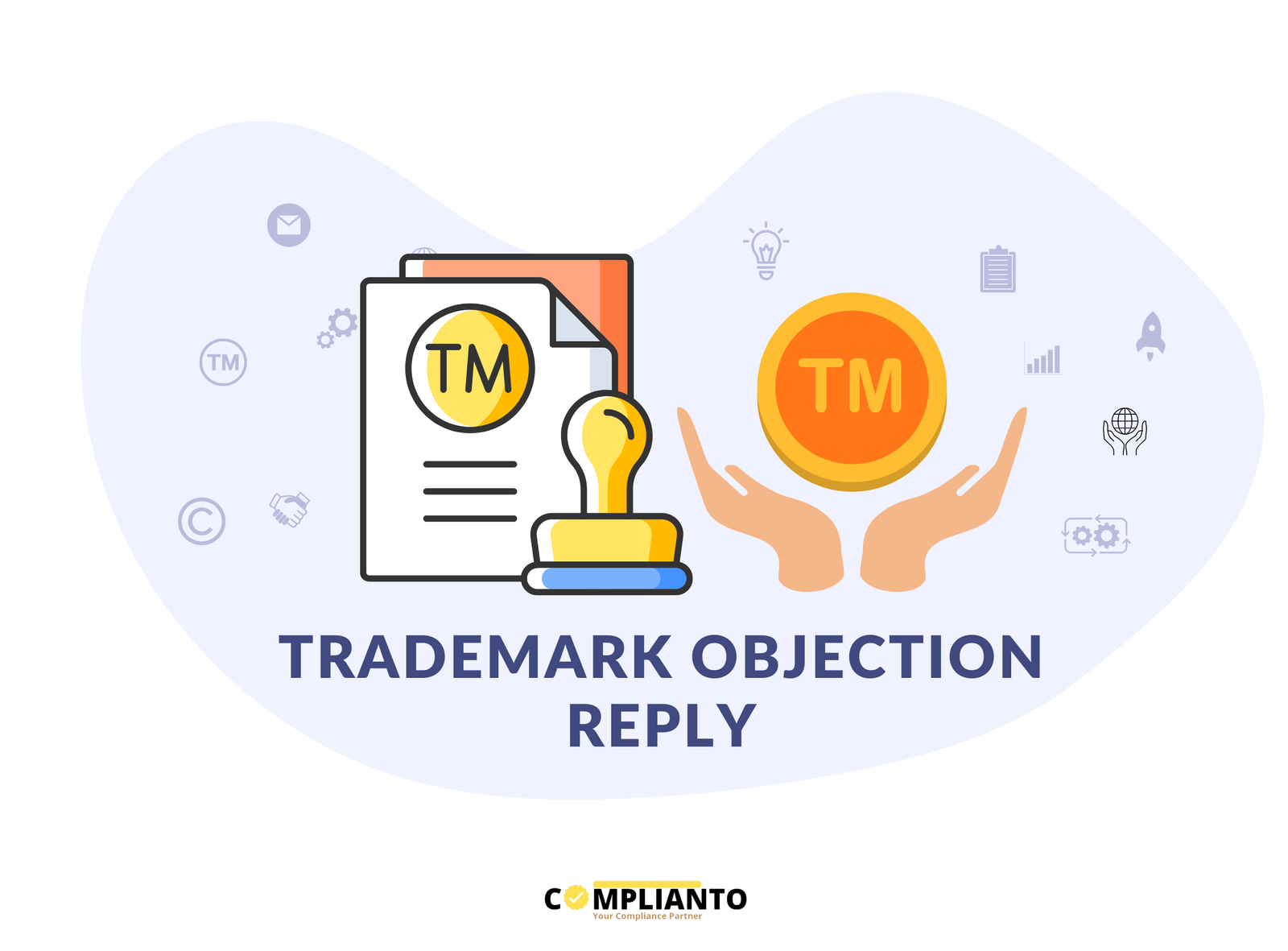Trademark registration objection reply refers to the response given by the trademark applicant to the objections raised by the Trademark Registry during the trademark registration process. The objections can be raised for various reasons, such as similarity with existing marks, lack of distinctiveness, incorrect filing, or non-compliance with legal requirements.
To prepare a suitable reply, the trademark applicant needs to review the objection notice and understand the grounds for objection raised by the Trademark Registry. The applicant may need to provide evidence and legal arguments to support the distinctiveness of the trademark and demonstrate that it is not likely to cause confusion with existing marks.
















